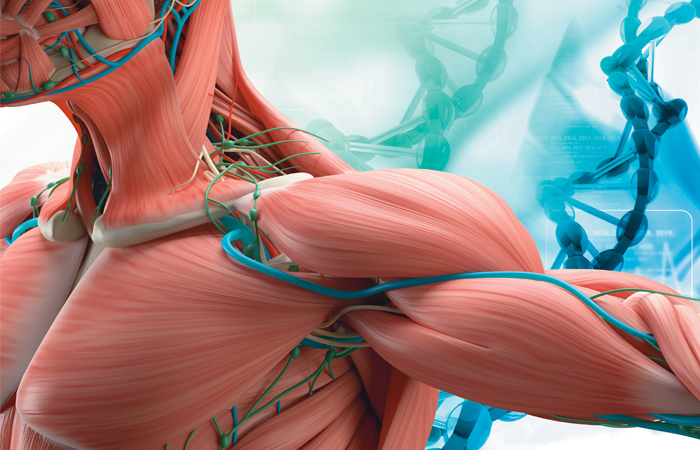
Trial Run: Is Participating in a Clinical Trial Right for Me?

Clinical trials are research studies conducted to determine whether a medical strategy, treatment or device is safe and effective for use in humans. They can test medical products including drugs and devices, help discover more information about a disease, or evaluate procedures or behavioral changes such as diet or exercise.
While a clinical trial is the cornerstone of research, it is important for individuals to carefully consider participation in any trial prior to making a commitment.
Why are trials important? Why do we need them?
Clinical trials play a key role in the development of new treatments for diseases. They may be used to detect, diagnose and reduce the risk of disease. Clinical trials provide important treatment information, including what works well and what might cause harm.
Who can participate in a clinical trial?
People of all ages, races, ethnicities and genders can participate in trials. Each study has its own inclusion and exclusion criteria to determine who is an appropriate candidate.
Why participate in a clinical trial?
Participating in a trial helps advance research. It can inspire feelings of empowerment for the participant, who may see it as an option to fight back against a disease.
How does participating in a clinical trial help me?
Participation in a clinical trial may accelerate the development of treatments, increase knowledge of a particular disease or even establish a cure. Results from these studies can improve patient care by providing information about the benefits and risks of products or interventions. Some trials may provide participants with direct medical benefits, while others do not.
What are my rights as a clinical trial participant?
The trial specifics and what will be expected of a participant will be explained to you prior to providing consent. You will have every opportunity to ask questions even after you have consented to participate.
What are my responsibilities as a participant?
Comply with the study protocol (visits, treatment, keeping notes, etc.). Tell study investigators about any possible side effects, as well as any hospital, ER and outpatient clinic visits. Do not conduct your own experiments, as they may invalidate study results. It’s also important to maintain confidentiality. Sharing impressions of study experiences can bias study investigators and participants and compromise the integrity of the study.
What can I talk about?
You may discuss any questions or concerns with the study coordinators or principal investigator. The study is obligated to maintain your confidentiality and the confidentiality of other participants.
What can’t I talk about?
You should not talk about whether you think you have placebo or drug. However, if you have a concern about the treatment you are receiving, you should always contact the study coordinator or principal investigator. Both are excellent resources for any questions you may have.
What if I enrolled, but now I don’t want to or can’t continue?
You can withdraw or decide not to participate at any time. If you withdraw from the study it is very important to contact your study coordinator and inform them of your decision. If you were taking a study medication, the study team will request a final visit with you to ensure you are OK. Your health and well-being come first in research.
What is informed consent?
Informed consent is permission provided by the participant after they have received all important information about a trial. This includes potential benefits, risks and consequences.
Who can give consent for my child?
If the clinical trial is indicated for children, the parents or guardian must decide if they want their child to participate. If the parents give permission, older children are usually asked if they wish to participate. This process is called assent. In most cases, a child can refuse to participate, even if the parents are willing to permit it.
How do I find a trial?
Talk with your doctor, and reach out to your MDA Care Center team for additional guidance. Search for trials at ClinicalTrials.gov or contact local universities. Also, MDA is launching a new clinical trial finder tool in early 2017 on mda.org to better connect families with trials for which they are eligible. MDA is working collaboratively with our Care Centers to host more clinical trials during the next few years.
Why is genetic testing important with regard to clinical trials?
Some studies require genetic confirmation of a disease before a person can participate in a clinical trial. Genetic testing can pinpoint an individual’s disease- causing mutation to ensure all people enrolled in the study are similar.
What is a clinical trial team?
Clinical studies are led by a principal investigator, who often is a medical doctor. In addition, there often is a research team that may include doctors, nurses, study coordinators, social workers and other health care professionals.
Will insurance pay for treatment associated with a clinical trial?
Some trials do bill insurance. In many cases, treatment received in connection with a clinical trial may be covered. This should be disclosed in the study consent form.
This article was written with contributions from Amy Madsen, marketing communications manager for MDA’s research program, and in consultation with Amy Bartlett, NeuroNEXT clinical research manager at The Ohio State University Wexner Medical Center’s Department of Neurology
Editor's note: To learn more about the clinical trial experience, read Clinical Trials: Preparation Tips and Questions to Ask and Types of Clinical Trials.
MDA Resource Center: We’re Here For You
Our trained specialists are here to provide one-on-one support for every part of your journey. Send a message below or call us at 1-833-ASK-MDA1 (1-833-275-6321). If you live outside the U.S., we may be able to connect you to muscular dystrophy groups in your area, but MDA programs are only available in the U.S.
Request Information